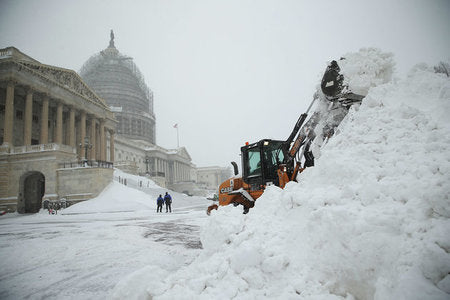"The tradition of the dead is breathing down the necks of the living" -Andreas Malm on climate change

As winter storm Jonas charged across the East Coast, many were quick to see it as a vindication of climate change denial. A Breitbart headline proudly read: “Blizzard of Global Warming Blankets US East Coast”. It’s not the first time winter conditions have been used to invalidate climate science: US Senator Jim Inhofe famously tossed a snowball on the senate floor in an argument against global warming. Meanwhile, studies suggest that climate change directly fuels the incidence of extreme weather events.
Increased moisture stemming from rising sea levels results in higher levels of precipitation – this water vapor fuels snowstorms and leads to extremes in weather events. At the same time, this pattern has led to projections of increased drought and an expansion of dry areas, with severe implications for crop yields and food accessibility in the coming years. Climate change is having a disastrous impact on the globe – to what do we owe this imminent catastrophe, and how do we stop it?
Andreas Malm explores the question in his latest release, Fossil Capital: The Rise of Steam Power and the Roots of Global Warming. He notes:
“It is proven beyond all reasonable doubt that global warming does not have natural causes. Solar radiation, volcanic outgassing, endogenous variations in the carbon cycle, and other similar suspects have been decisively cleared of responsibility for the rise in temperatures, the root causes firmly passed to the social side of the equation. Once we cross that line, we immediately encounter power – indeed, this happens as soon as we use the term ‘fossil fuels’. They are, by definition, a materialization of social relations.”
Malm calls for an urgent change in the discourse around global warming. Eschewing the domain of the natural sciences, where discussion is all too often confined to examinations of consequences, Malm seeks to examine its human origins and the underlying power relations implicated therein.
A radically new approach will be needed if we are to mitigate the worst effects of the oncoming environmental crisis. A look towards the development of the present system stands to suggest novel avenues for resistance.
